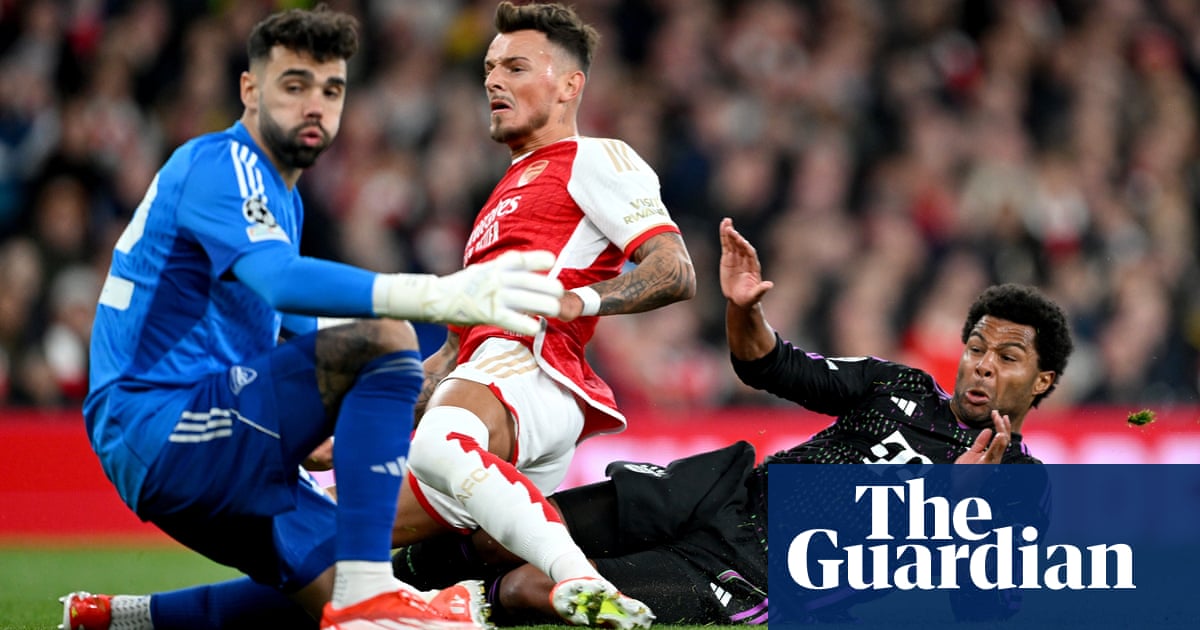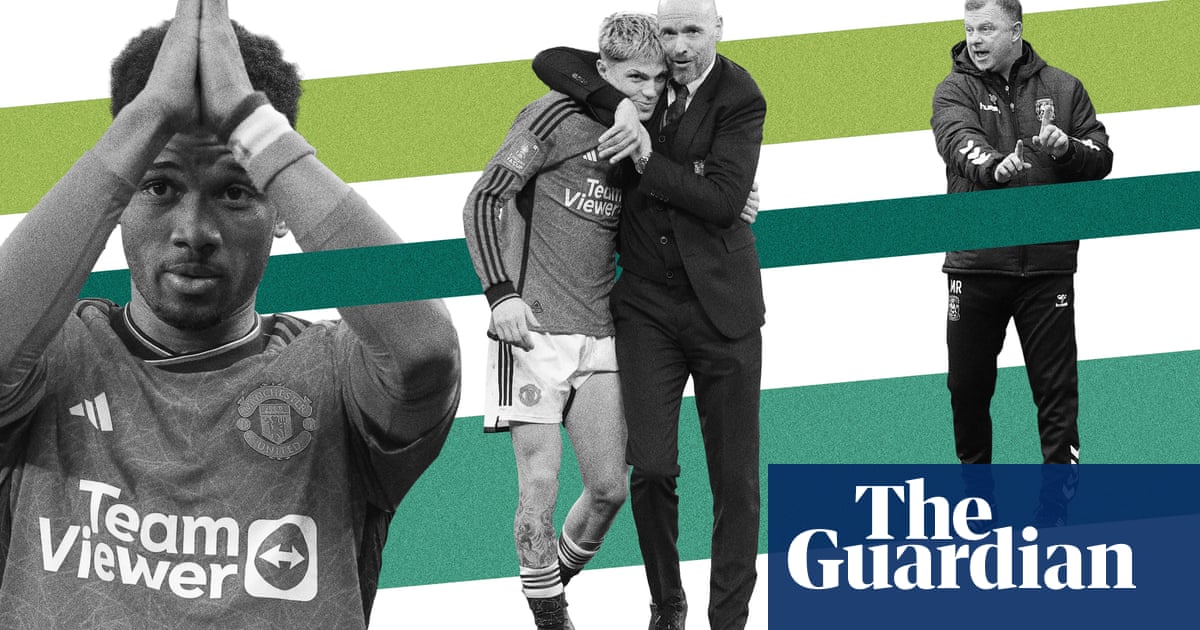
It wasn’t supposed to be this hard. In the opening 15 minutes, it didn’t look as though it was going to be this hard. In the end, it could have been a lot worse for Arsenal and a draw still gives them a reasonable chance of progression to the semi-final. They did have the wherewithal to find an equaliser. They got away with it. But the bigger issue is how they allowed a game they were dominating to slip from their grasp.
A penalty shootout win against Porto was evidently not enough to banish Arsenal’s European demons. But those demons are perhaps not confined to the Champions League. This has been a highly impressive season for them, a clear improvement on last year. But one doubt remains: when the going is good, Arsenal are very, very good, but what happens when things go awry?
As it had been against Brentford, so it was against Bayern. In both games, Arsenal seemed in complete control and in both they conceded against the run of play thanks to a goalkeeping error. David Raya’s mistake was less obvious than Aaron Ramsdale’s, but his needless charge from his area initiated the chaos that led to Serge Gnabry’s goal.
Early on, it was startling just how much quicker Arsenal were than Bayern. This it seemed, was the familiar Premier League advantage of intensity against European sides, only more so. But one self‑inflicted goal conceded led to another and suddenly Arsenal had a game to chase; having proved their technical and physical credentials, they then had to demonstrate their character, to answer the one question that has remained since the December defeats by Fulham and West Ham.
A lot has changed in the seven years since Bayern last played at the Emirates. They have won the Champions League, have plateaued and are currently enduring a blip they desperately hope will not become decline. The fortunes of the clubs have crossed over to the point that Arsenal went into the tie as clear favourites, something that would have been unthinkable two years ago and unlikely even last season, despite the enormous financial advantages of English clubs. But the polarities have perhaps not flipped as completely as it had seemed: early thoughts that Arsenal might pull off a 5-1 win of their own had to be rapidly recalibrated.
Bayern’s problems are a reminder that nothing in football is inevitable, not even for a club with a budget almost double that of their nearest domestic competitor. Eventually, staleness sets in – and, for big clubs, when belief goes, the fall can be precipitous. It was announced in February, after three successive defeats, that Thomas Tuchel would leave at the end of the season. The thinking, perhaps, was that clarity on his future would clear heads for the title run-in but, while there was a comeback against Lazio to reach this stage of the Champions League, plus a couple of demolitions of the Bundesliga’s minnows, there was also a first league defeat to Borussia Dortmund for five years and Saturday’s collapse against Heidenheim.
With six games of the season remaining, they trail Bayer Leverkusen by 16 points. There will not be a 12th successive Bundesliga title for Bayern. The only hope before kick-off was that the Champions League could somehow provide unlikely salvation – as it did for Chelsea after Tuchel had taken charge in 2021. That feels a little more plausible now.
Unavoidable in any assessment of what has gone wrong this season is the club-record signing of Harry Kane. It’s easy, of course, to make cheap jokes, as Arsenal fans gleefully did, about the contagion of Spursiness but there are also more serious conversations to be had about how it can be that Kane continues to score goals by the bucketload – his penalty was his 39th goal in all competitions this season – and yet wins nothing.
The temptation is to compare his signing with Juventus splashing £100m on Cristiano Ronaldo and seeing him continue to score goals as the side got worse, eventually ending their run of nine successive titles.
But Kane does not have the disruptive ego of Ronaldo and, in his capacity to drop deep and spring runners, which caused Arsenal persistent problems, does not make a side as one‑dimensional as late-period Ronaldo did.
Yet there is a similarity: two giants dominant in their domestic leagues breaking with convention to sign a showpiece centre-forward in the belief that that was what they needed to bring European success. What both were guilty of, perhaps, is a failure of imagination, believing their problems could be solved by money when the truth was that what had gone wrong was their processes, that, largely unchallenged domestically, they had failed to keep up with the evolution of the game.
But they are still a super‑club, with super‑club belief. And that is something Arsenal are having to fight to achieve.












